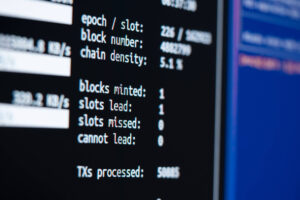Utility tokens represent a special category within the broader field of digital assets. Unlike traditional cryptocurrencies such as Bitcoin or Ethereum, utility tokens derive their value from the specific functions and services they enable within an ecosystem.
The main feature that distinguishes utility tokens is their utility within the associated ecosystem. Holders often gain access to a range of functions, including but not limited to voting rights, platform usage or participation in decentralized governance processes. For example, within a decentralized cloud storage platform, a utility token could be used to purchase storage space or facilitate transactions. The intrinsic value of utility tokens is thus closely intertwined with the services and benefits they unlock within their respective ecosystems.
Utility tokens face regulatory hurdles
Despite their potential benefits, the utility token space is not a smooth ride. Regulatory uncertainties regarding the classification and oversight of utility tokens have led to increased scrutiny by authorities around the world. Determining whether a utility token falls under securities regulations or is classified as a utility presents a complex legal landscape.
Regulators may require KYC (Know Your Customer) and AML (Anti-Money Laundering) regulations for utility token trading to combat illegal activities. This could affect the ease of use and anonymity often associated with cryptocurrencies. As utility tokens are often associated with speculative investments, regulators may require consumer protection measures to protect investors from fraud and market manipulation.
Maintaining value comes with effort
The value of utility tokens also depends on the adoption and sustainable functionality of the associated blockchain platform. Projects must strike the delicate balance between creating a tokenomics model that encourages user participation and ecosystem growth, and maintaining a stable and attractive value proposition for investors.
Token issuers often use mechanisms such as token burns, staking rewards or governance incentives to align the interests of users and investors. Current market participants will play a critical role in shaping the future of decentralized ecosystems. The recognition and development of utility tokens will influence the economy as one of its indispensable elements.









